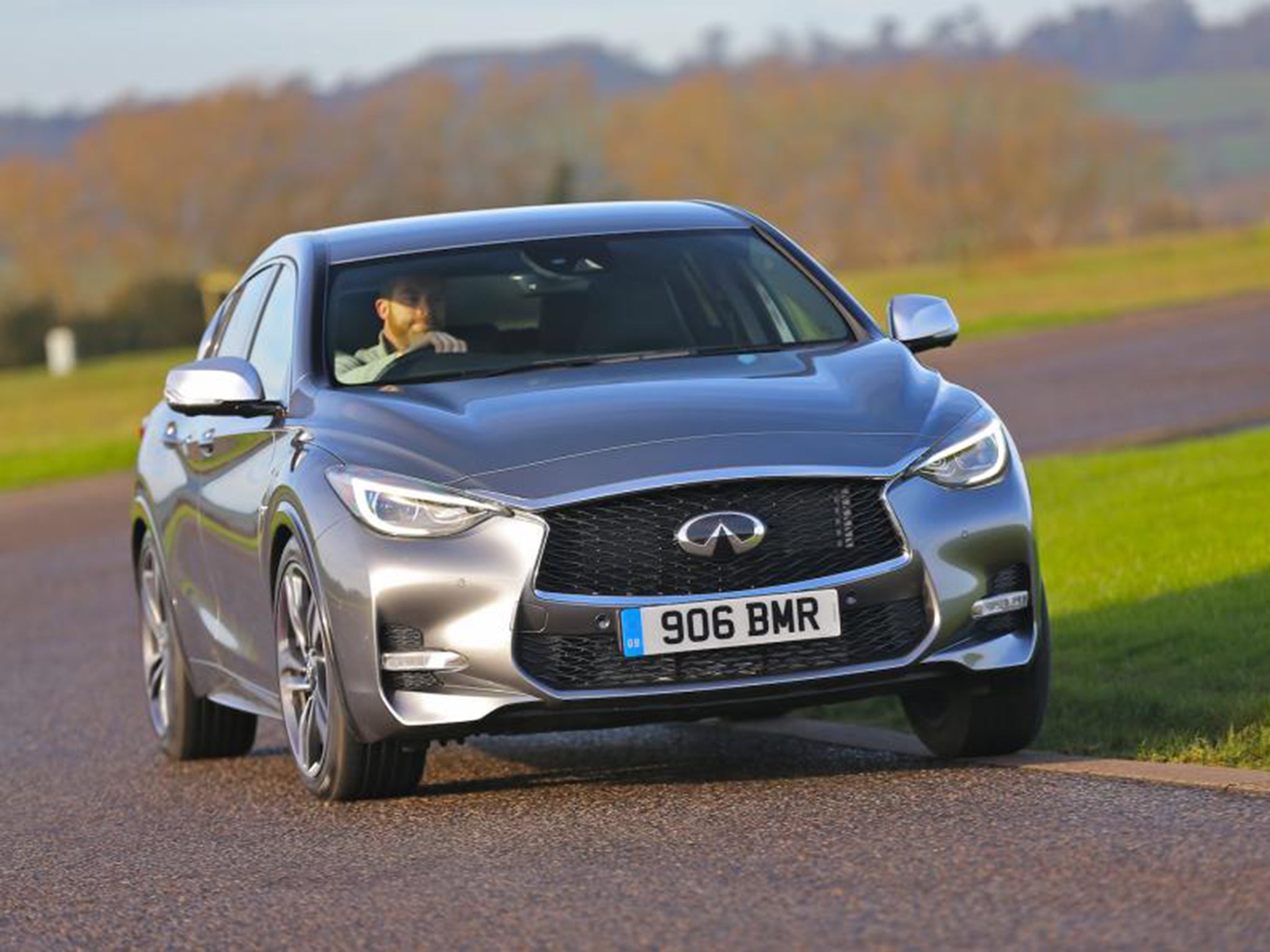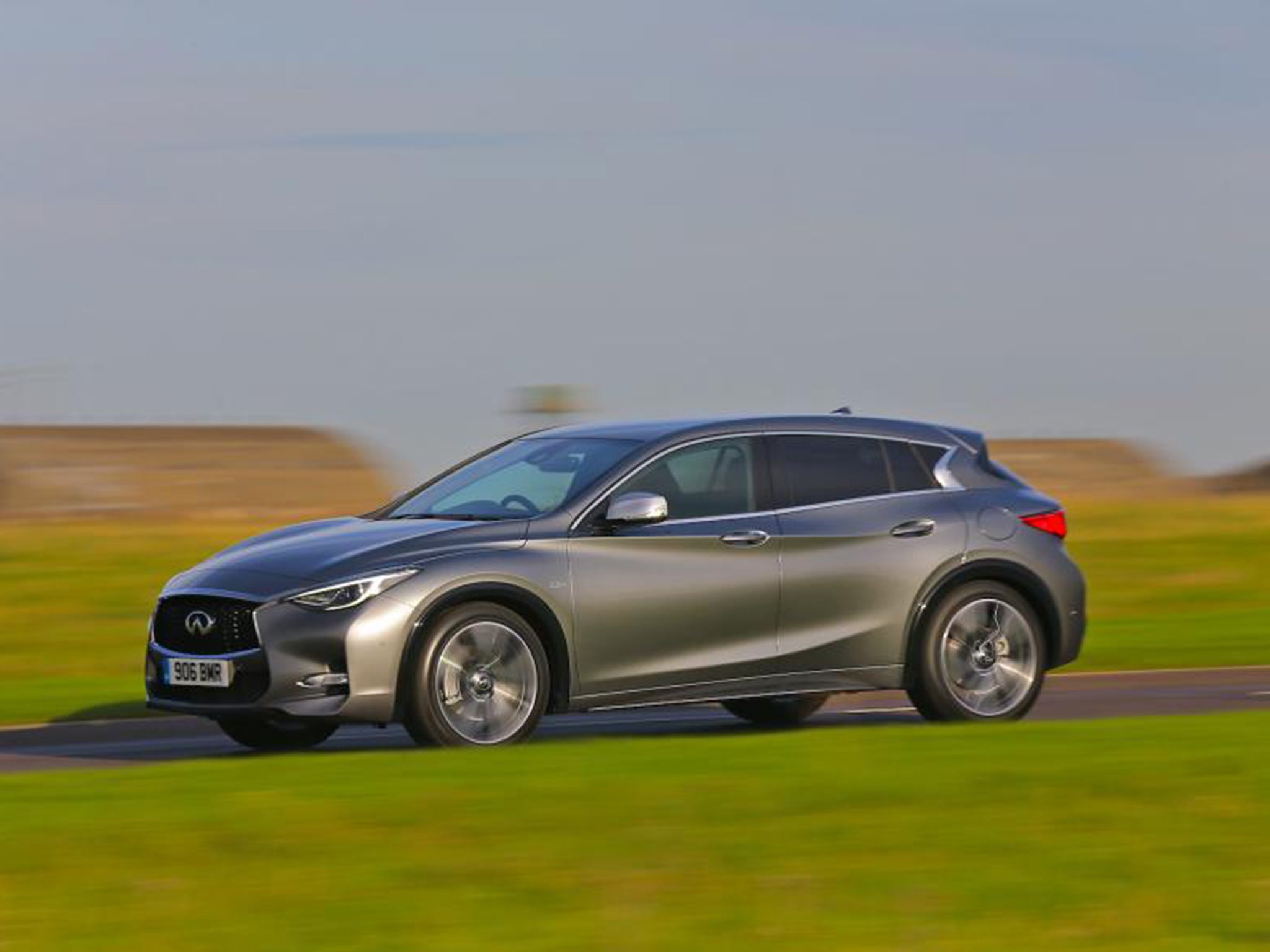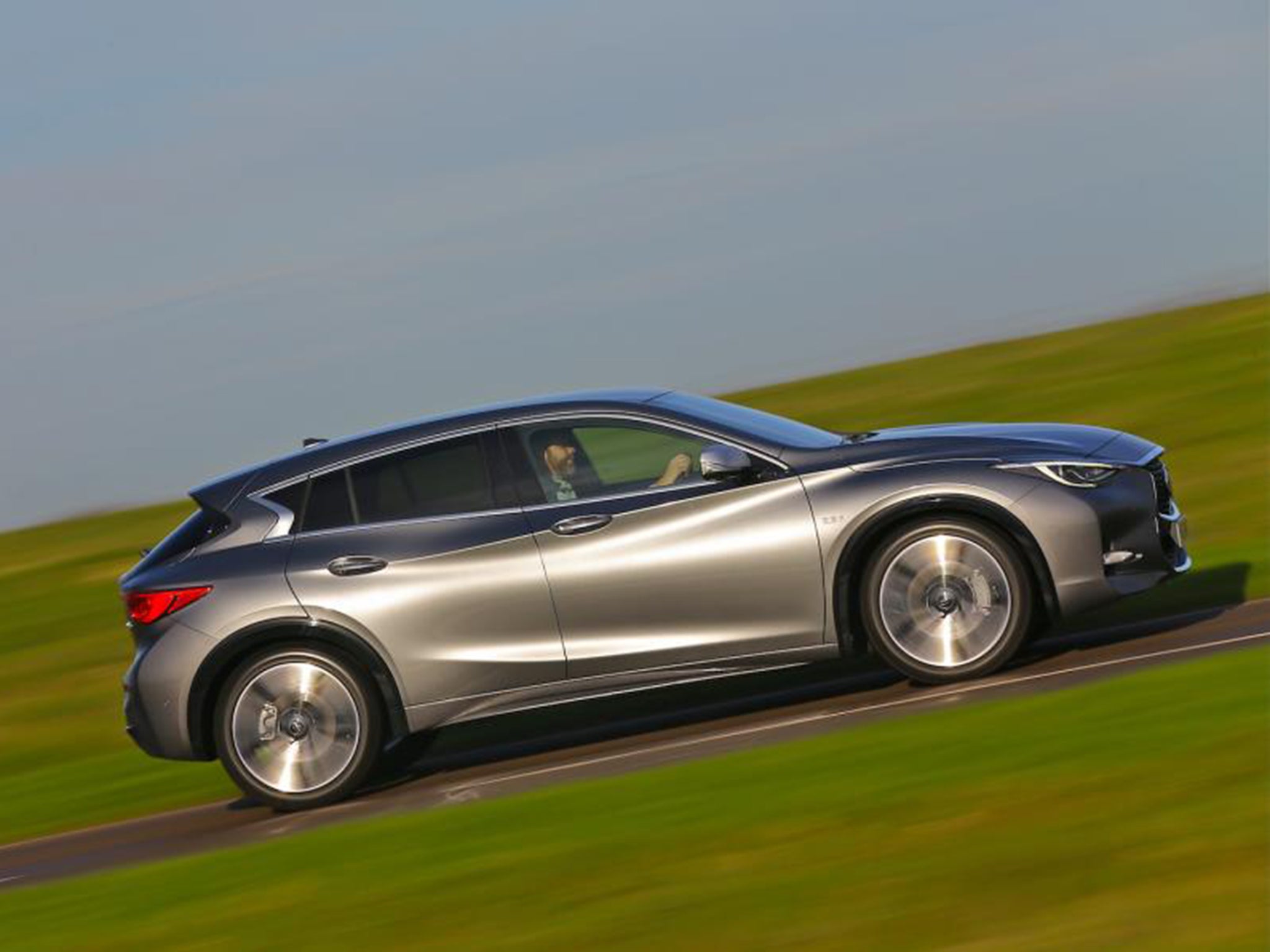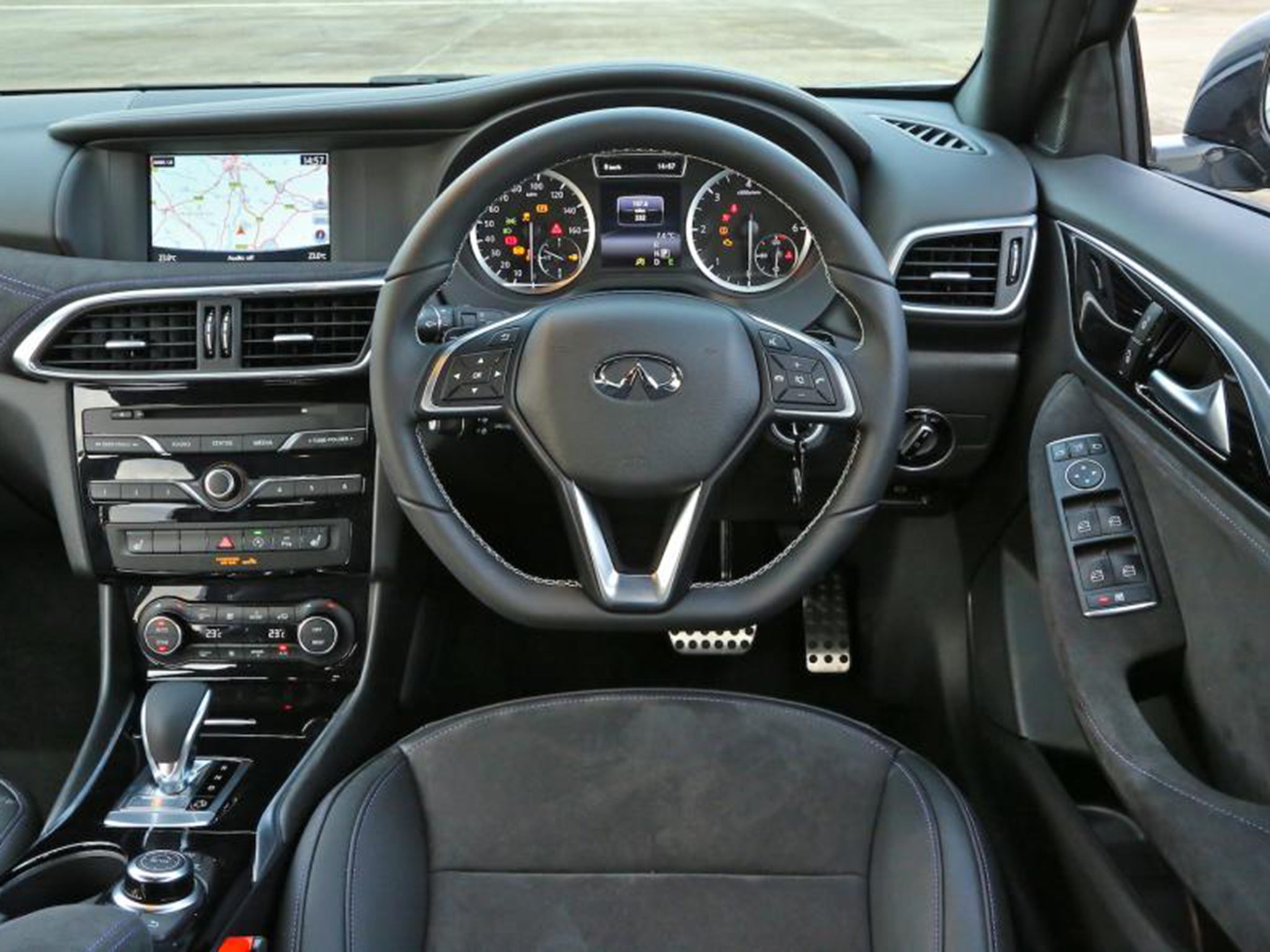Infiniti Q30 2.2d AWD, car review: Nissan luxury brand takes on BMW and Audi
Infiniti have done well to produce something distinctive enough to separate it from their Germanic counterparts

Your support helps us to tell the story
From reproductive rights to climate change to Big Tech, The Independent is on the ground when the story is developing. Whether it's investigating the financials of Elon Musk's pro-Trump PAC or producing our latest documentary, 'The A Word', which shines a light on the American women fighting for reproductive rights, we know how important it is to parse out the facts from the messaging.
At such a critical moment in US history, we need reporters on the ground. Your donation allows us to keep sending journalists to speak to both sides of the story.
The Independent is trusted by Americans across the entire political spectrum. And unlike many other quality news outlets, we choose not to lock Americans out of our reporting and analysis with paywalls. We believe quality journalism should be available to everyone, paid for by those who can afford it.
Your support makes all the difference.There’s an interesting irony here. We have a Japanese brand trying to encourage buyers away from the likes of BMW and Audi, to buy its own product. Which is based on a German underpinning, the Mercedes-Benz A-Class. And some of the engine choice comes from Renault. But, despite everything, this is an Infiniti.
Which means it stands out from the crowd. The distinctive styling works, and allows for plenty of room for those in the front seats.
The cabin seems well put together, and there’s plenty of adjustment in the front. However, those in the rear get a lot less room and light. To balance that, the boot is capacious. The level of tech is fine but no better, and most trim levels mean you don’t get sat-nav as standard. It’s a £1400 option.

Under the bonnet there is a range of engines from a range of sources. At the entry level, as mentioned, Renault provide the motive power. This is a 1.5-litre turbodiesel emitting 108g/km of CO2 and managing a claimed 68.9mpg. At the other end, and tested here, is a 2.2-litre turbodiesel that can manage 127g/km and 57.6mpg.
Infiniti Q30 22d
On sale Now
Price £31,180
Engine 4 cyls, 2143cc, diesel
Power 168bhp at 3400-4000rpm
Torque 258lb ft at 1400-3400rpm
0-62mph 8.5sec
Top speed 134mph
Gearbox 7-spd dual-clutch automatic
Kerb weight 1622kg
Economy 57.6mpg (combined)
CO2 rating & BIK tax band 127g/km, 23%
This latter unit is sourced from Mercedes, and pushes on well. Although the noise-cancelling software has some work to do, and still has some way to go as the revs rise. The engine rumble is joined by wind and tyre noise but all this sound is matched by decent performance.
This AWD model feels quite potent, working smoothly through a seven-speed dual-clutch auto box. It works better in auto than manual mode. There are plenty of variants to choose from, and we tried both Premium Tech and Sport. The former is pretty comfortable with gentle understeer building up. However it has more body lean than feels reassuring.

The Sport variant doesn’t suffer so much from the body lean, but then that is at the expense of the ride quality. The stiffer springs and lower suspension mean you get better handling but the ride is rather compromised, with more signals from the road intruding. The steering is far from sporty. Since the performance isn’t improved this seems an option not really worth exploring.

Infiniti have given this a good shot, to produce something distinctive enough to separate it from their Germanic counterparts like the Audi A3 or the BMW 1 Series. It is different, you can tick that box. But is it better?
In terms of value for money you’d struggle to make the case. Take one major competitor, the Audi A3 Sportback 2.0 TDI 184 quattro automatic. It’s faster, cheaper, drives better and has a superior interior. That’s a tough list to beat.
Join our commenting forum
Join thought-provoking conversations, follow other Independent readers and see their replies
Comments